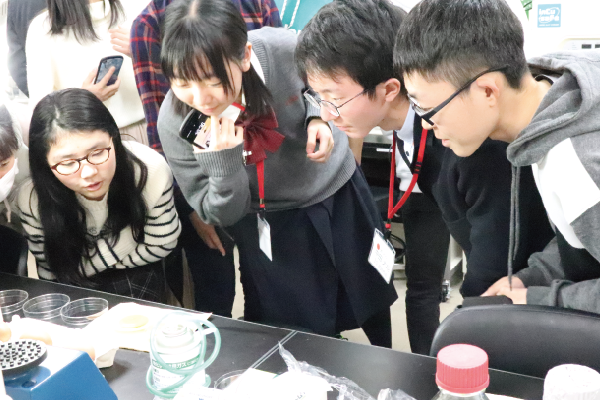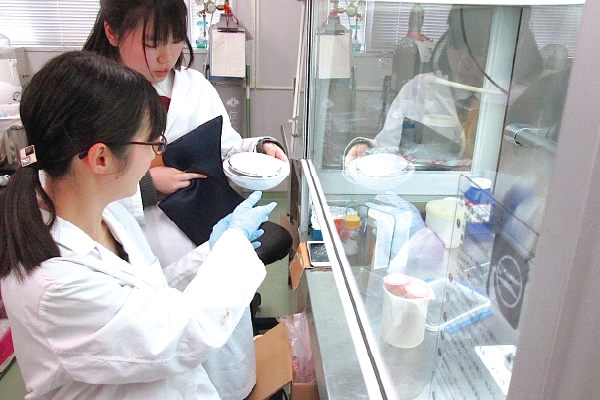The program is organized into two stages, the Basic Stage in the first half (July-January) and the Implementation Stage in the second half (January-March). Students for the Basic Stage (approximately 40) are planned to be selected from applicants during July. Students who may proceed to the Implementation Stage (approximately 10) will be selected from those in the Basic Stage during January of the following year.


July of the first year to January of the second year
(approximately 40 students)
Learn the various basic skills needed for research!
In the Basic Stage (July (1st year) – January (2nd year)), along with deepening their understanding of “fundamental questions,” students will learn the way of thinking and skills needed to carry out research, create a research proposal for a research topic of their own, and make a presentation for it. They will also acquire the basic communication skills to be successful in international settings.
Events that all students will attend include: Orientation in July, General Session I in August, General Session II in October, and General Session Ⅲ in January of the following year. From September through December, sessions will be held on weekends, for which students will attend about two per month of their choosing (Weekend Session). Visits and tours of advanced research institutes, etc. will also be conducted.

Development of research topic and plan
Along with thinking about what “science” is and what a scientific “question” is, each student will seek the answers to questions they wish to pursue, develop a research topic and plan, and make a presentation at the General Session Ⅲ.
Acquisition of basic knowledge and skills
Through lectures, hands-on training, and experiments within the four fields of materials science, life science, information and computational science, and human and environmental science, students will aim to acquire the basic knowledge and skills needed to carry out research.
Study of English and international activities
In order to acquire the English proficiency needed for presentations and for conducting scientific research, students will learn about international activities within science through practical lectures, as well as lectures and talks by seniors and scientists who work internationally.

February of the second year to March of the third year
(approximately 10 students)
Engage in full-scale research!
In the Advanced Stage (February (2nd year) – March (3rd year)), students selected from the Basic Stage will carry out research on a theme of their own proposal at a university, etc. Through the research process, they will have the opportunity to meet with university instructors and report on their research progress, exchange ideas and opinions, and present their preliminary results in English, etc.
From the second half of the Advanced Stage, with support for compiling their research results, we hope students will aim to eventually present their research results to an international academic society or work on developing an English thesis.
Finally, students will turn in a report on their activities and research during the Advanced Stage, and make a presentation at the Research Results Presentation.

Implementation of research plan
Through discussions with experts, the research topic decided in the Basic Stage will be further refined by considering “feasibility,” “novelty,” and “scientific value,” and students will aim to conduct full-scale research based on the advice of experts.
Intensive training of English proficiency
Intensive training will be carried out in March to improve English proficiency to a level necessary to make presentations and carry out scientific research. Instruction and training related to discussions, presentations, etc. in English will be conducted by native English-speaking instructors.
Presentation of research results in English
In July, students will attend a domestic (Kobe) research results presentation conducted in English. From August, they will take on the challenge of making a research presentation in English to an international academic society, etc. or developing their results into a thesis.
